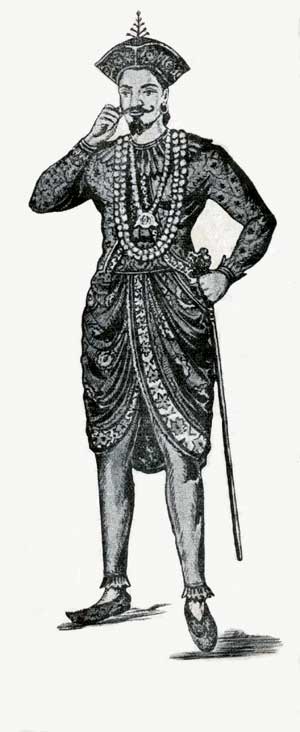
Antonio Baretto, the legend, his military exploits and bravery is mentioned in many historical books of early Ceylon. Baldaeus’ ‘Description of Ceylon’, Rev. Father Fernando Queyroz’s ‘The Conquest of Ceylon’, Paul E. Peiris’ ‘Portuguese Era’, Father S. G. Perera’s ‘Ceylon History’ and Alagiyawanna Mohottala’s ‘Constantinu Hatana’ are some of the books that describe the heroic acts and the fear with which the Portuguese held him.
Antonio was born in the village of Kadupiti, in Madampe, in close proximity to Chilaw. At times he has been addressed as Karava Baretto and at times as Paravar Baretto.
‘Avisvasamalai’ or a set of ola leaf books written by Nagasingath found in the British Meuseum P8098/OR6606(156) and ‘Constantinu Hatana’ written by Alagiyawanna Mohottala are both works (written in prose) that chronicles the great deeds of this man. Both have been written with a Portuguese perspective. The former document has been used to instigate friction between King Senerath and Antonio Baretto at a time of great intrigue.
Constantinu Hatana : The story of Antonio Baretto
Antonio Baretto was an exceptional soldier attached to the Singhalese forces of the Portuguese army, and worked under the great Don Fernando Samarakoon Rala, Mudaliyar. After a dispute, which resulted in the death of Smarakoon Mudaliyar’s brother (described as his Brother-In-Law Don Manuel Mudaliyar, elsewhere in the book). Antonio deserted the army and in later years emerged as a powerful leader in the Kuruwita region, and later on in Avissawella (Sitawaka), Matara and Sabaragamuwa districts. Antonio who by this time was known as ‘Kuruwita Rala’, later on became the ruler in these areas. Baretto who had smaller beginnings under the Portuguese started harassing them, antagonizing the Portuguese. The Portuguese how ever held back any offensive expeditions against Baretto, as they were depleted in strength and needed their resources elsewhere. Antonio who knew the impending threat from the Portuguese, won the confidence of King Senerath of Kandy, and later on took over the reign of Uva as a sub ordinate King (Yuwa Raja).
King Senerat who sought an arrangement with the Portuguese, became unpopular as ultimately he had to pay taxes to the them. This led to a rebellion led by Baretto which led to the overthrowing of King Senerat, and helped Mayadunne who was exiled in India, to come into power.
This magnificent man’s life came to an end in 1620. Captured after 18 years of struggle, he was put to a public execution by the Dissava of Matara.
Dona Catherina (from ‘History of Ceylon’, Phillalethese p101-104.)
The Prince Mahestana son of Don John Wimala Dharmasuriya and Dona Catherina for whom the crown was professedly held, died on the 22nd of August 1612 not without suspicions of having been poisoned by his step father Senevirat, in order to secure the crown to a son of his own.
The Empress Dona Catherina who was so much effected by the loss of her son, that she had taken hardly any nourishment since his death, perceiving her end was near sent in July 1613 for Prince of Maggone and Prince of Uva (Antonio Baretto), and after extracting from them and oath of fidelity made them guardians over her children brought into her presence, and kissed them one after the other, she earnestly adjured the two chiefs above mentioned to protect them with constancy and affection.
After this, casting her eyes upon her husband Senevirat, who was present she charged him with having the cause of her death, though it does not appear that there was any ground for the accusation; but he is said to have taken it so much to heart, that it impaired his health and threaten his life.
The Empress breathed her last on the 20th of July, in the year 1613. Before her death she expressed great contrition for her sins, and particularly that of having conformed to the sights of pagan worship.
The day after decease, her funeral obsequies were performed with great magnificence, in the same place where those of her son had recently received the same tribute of ceremonious regard.
After the death of the Empress, the sickness of the Emperor assumed such a dangerous aspect that he assembled his principle nobles and requested them to choose two of their order to govern the Kingdom during the minority of his son. They selected the Prince of Maggone and the Prince of Uva for this important trust. They were accordingly appointed by the solemn act to exercise the supreme administration during the minority of the prince.
The Emperor at the same time earnestly admonished all his children to obey these guardians of the realm as long as they were subjected to their control.
The scene naturally leads us to expect that Senevirat would soon breath his last; but he appears to have survived for several years this delegation of the sovereignty to two of the chiefs,